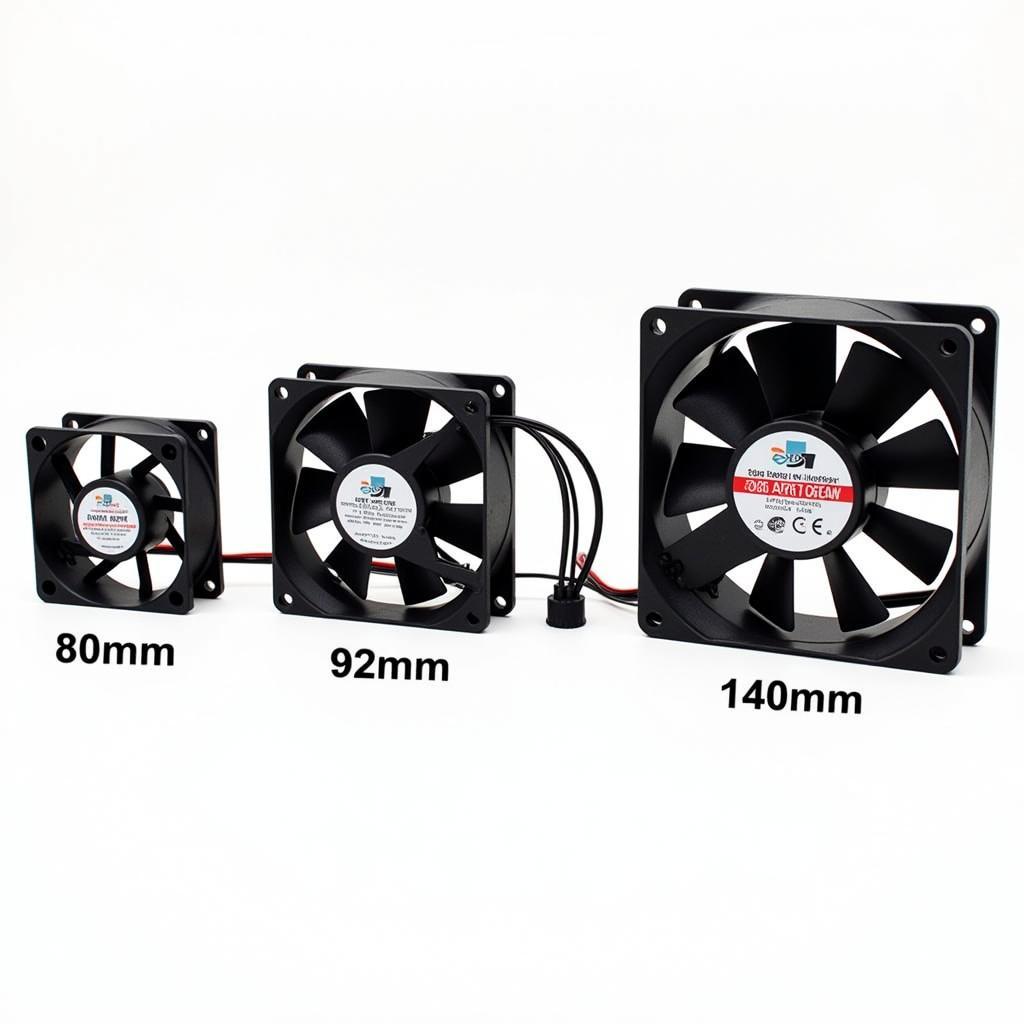Understanding the difference between case fans and CPU fans is crucial for building and maintaining a high-performing PC. Both play vital roles in cooling your system, but they do so in different ways and focusing on one over the other could negatively impact your system’s performance. This guide will delve into the distinctions between these two essential components, helping you make informed decisions for your next build or upgrade.
Understanding the Roles of Cooling Fans
Both case fans and CPU fans work together to regulate your system’s temperature, preventing overheating and ensuring optimal performance. However, they have distinct functions and designs tailored to their specific roles. Let’s break down each component and its unique characteristics.
Case Fans: Airflow Management for Overall Cooling
Case fans are responsible for the general airflow within your computer case. They create a pressure differential, drawing in cool air from outside and expelling hot air generated by components. This airflow helps keep all components, including the motherboard, graphics card, and hard drives, at safe operating temperatures.
CPU Fans: Targeted Cooling for the Processor
CPU fans, or heatsink fans, focus solely on cooling the central processing unit (CPU). The CPU is one of the hottest components in your system, especially under heavy load. A CPU fan is attached to a heatsink, which draws heat away from the processor. The fan then dissipates this heat into the case, where it’s expelled by the case fans.
Key Differences: Case Fan vs. CPU Fan
Several key distinctions separate case fans and CPU fans. These differences primarily relate to their design, airflow characteristics, and installation methods.
Design and Airflow
CPU fans are designed for high static pressure. This means they can effectively move air through the restrictive fins of a heatsink. Case fans, on the other hand, prioritize airflow, moving larger volumes of air at lower pressure. This makes them ideal for creating a general airflow within the case.
Installation and Mounting
CPU fans are mounted directly onto the heatsink, which is then attached to the CPU. The mounting mechanism varies depending on the CPU socket type. Case fans are typically mounted to designated fan slots on the front, rear, top, or bottom of the case.
Size and Speed
While both come in various sizes, CPU fans are often smaller than case fans. Common sizes include 80mm, 92mm, and 120mm for both types, although 140mm case fans are increasingly popular. You might consider a best pc case fans 140mm when building your PC. Fan speeds are measured in RPM (revolutions per minute), and both types can operate at various speeds.
 Comparison of Different Fan Sizes
Comparison of Different Fan Sizes
Can You Use a Case Fan as a CPU Fan (and Vice Versa)?
While technically possible in some situations, using a case fan as a CPU fan is generally not recommended. A case fan may not provide sufficient static pressure to effectively cool the CPU, leading to overheating. Similarly, using a CPU fan as a case fan may not create adequate airflow within the case. Choosing the correct fan for the intended purpose is crucial for optimal system performance. For those on a budget looking for a 12cm fan, check out options available at fan 12cm tiki.
Choosing the Right Fans for Your System
Selecting appropriate cooling fans depends on several factors, including your case size, CPU, and overall system components. A balanced approach, utilizing both effective case fans and a dedicated CPU cooler, is essential for maintaining optimal temperatures and preventing performance throttling. If you’re working with an 1151 v2 socket, you might want to check out fan cpu 1151 v2 cooler master.
Conclusion
Understanding the Case Fan And Cpu Fan Difference is fundamental for building a well-cooled and stable PC. While both contribute to overall system cooling, their distinct roles and design features necessitate careful selection based on your specific needs. By choosing the correct fans, you can ensure optimal performance and prevent overheating issues. For example, those considering the H500P Mesh White case and wanting additional cooling might find this helpful: h500p mesh white extra fan. This underscores the importance of researching your specific setup and understanding the nuances of cooling components.
Need support? Contact us 24/7: Phone: 0903426737, Email: fansbongda@gmail.com or visit us at Tổ 9, Khu 6, Phường Giếng Đáy, Thành Phố Hạ Long, Giếng Đáy, Hạ Long, Quảng Ninh, Việt Nam.


